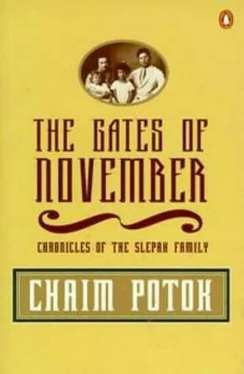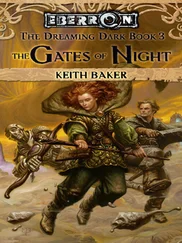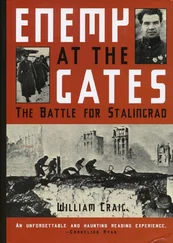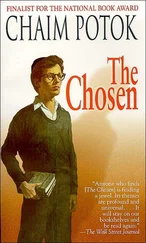Solomon’s face turned to stone.
The old man went on talking, as if to himself. “Whenever people heard the name Sam, they thought only about cruelty to the enemies of the Revolution, about wiping out opponents without mercy. The waters of the river turned red from the blood of the corpses…”
Solomon Slepak. Fiery convert to a new faith. Bringer of fire and death to the enemies of Bolshevik Russia and the Communist Party.
The Russian Jews who gave themselves heart and mind to the Bolshevik cause were, like Solomon Slepak, men and women who inhabited a cruel between-world: no longer part of the world of their Jewish beginnings, which they had long since abandoned, and not yet fully a part of the world of Russia, which loathed and feared Jews. During the Civil War, anti-Semitism was so rife among Russians of all ages, parties, classes, and nationalities as virtually to border on national psychosis. Reinforcing the traditional picture of the Jews promulgated by church and state for a thousand years was the fact of their sudden appearance throughout Russia. The Pale of Settlement, where Jews had been forced to live under the tsars, had virtually emptied of Jews during the war, and now they were to be found in cities in the very heart of the country. Their presence at the highest levels of government and in places where Jews had never before been seen came at the same time as the Revolution: Leon Trotsky, second only to Lenin; Yakov Sverdlov, who ran the day-to-day affairs of the Communist Party; Kamenev, Zinoviev, Radek; so many others-all of Jewish descent, all unable to return to their own people, all loathing the monarchist and anti-Semitic ranks of the Whites. The Communist Party, a seeming haven for the radical intelligentsia and apparently uninterested in the ethnic and religious origins of its members, became the sole refuge of certain marginal Jews, who believed it would bring a great and true salvation to the world, a revolutionary universalism in which the destructive differences that divided humankind would once and for all be forever dissolved. It mattered little to most Russians that these Jews were no more Jewish than their non-Jewish atheist party comrades; that they did not speak for or identify with Jews, and indeed were often the enemies of Jews. Further, because many Jews stepped into the vacuum created by the disintegration of the tsarist bureaucracy, it now seemed to many Russians that Jewish government officials were everywhere. Their sudden appearance, concurrent as it was with the Revolution and the Civil War, forever linked those events in the minds of Russians, for whom the Jew now became the evil cause of the Fatherland’s unutterable misery.
Not since the massacres during the Cossack uprising against Poland in the middle of the seventeenth century was the slaughter of Jews on so vast a scale. Prelates of the Orthodox Church saw the Civil War as a struggle of biblical proportions against godless Jews who were attempting to conquer Holy Russia. White and Red armies, bands of brigands, marauding Cossacks, roaming gangs of thieves-everyone plundered and killed Jews in obscene and brutal ways, though the Red Army officially forbade its troops from staging pogroms and at times punished the perpetrators. Photographs of pogrom victims show hideous head and face wounds, amputees, corpses, children weeping over the bodies of parents. About 150,000 Jews died in the pogroms of the Russian Civil War.
Small wonder the dread of the Jews and the reaction by the chief rabbi of Moscow, Jacob Mazeh, who, hearing Trotsky say that he was not a Jew and would not help Jews, stated that it was the Trotskys who made the Revolution and the Bronsteins-Trotsky’s original Jewish name-who paid the bills for it. Small wonder the story about the Jewish Red Army soldier who, half crazed, ran about executing wounded Ukrainians abandoned by the retreating Whites. “He would wipe his bayonet in the grass to remove the blood,” relates the chronicle of that event, “and with every head he cut off he screamed, ‘This is my payment for my murdered sister, this is my retribution for my murdered mother!’ The Jewish crowd,” concludes the story, “held its breath and kept silent.”
And in the Far East, Solomon Slepak headed a division of partisans that fought Japanese troops and anarchic Cossack bands and moved to link up with the Red Army’s advance upon the city of Omsk, where Admiral Kolchak ruled as head of the Whites of Siberia and the Far Eastern Province.
There were about twenty-five thousand Jews in the Far Eastern Province at that time. The family chronicles are silent about whether or not Solomon Slepak, as commanding officer of a Red partisan division, attempted to establish any sort of contact with that community. It is known that he had a Jewish girlfriend named Zlata.
In November 1919 the Red Army defeated the army of Admiral Kolchak, and shortly afterward the city of Omsk fell without a battle. Accounts of the flight of Whites eastward describe a nightmare of typhus and death. Kolchak was taken by the Bolsheviks, who executed him in February 1920 on the orders of Lenin.
Some while later Solomon linked up with the Red Army and turned over to it command of his division. The Civil War dragged on some additional months; the last effective White army, fighting in the Crimea under the command of Peter Wrangel, was evacuated in November by British, French, and Russian ships. The Whites not captured by the Reds slipped out of the country and vanished.
Then came famine. Twenty million Russians died in the years that followed the Revolution. The Russian economy was in utter ruins. Still, Lenin and his band of revolutionaries had triumphed.
But Lenin did not regard the success of the Revolution as his only goal; it was, rather, a means to the more essential end of world revolution. All of Russia was to serve as a wedge into the West and global capitalism. His program was to divide existing Social Democratic parties, separate and organize their most radical members, and wherever possible, incite revolution.
To these ends, Lenin created in March 1919 the First Communist International, known as the Comintern or the Third International. And in the midst of the Civil War there took place the First Congress of the Comintern, a gathering of foreign revolutionary socialists, most of them in Moscow by chance and with no authority from their home parties to represent them. “Our task,” Trotsky announced at that milestone event, “is to generalize the revolutionary experience of the working class… and hasten the victory of the Communist Revolution throughout the world.”
The Second Congress of the Comintern opened in Petrograd in July 1920, with everyone sensing that the end of the Civil War was near.
There was some concern about a threat against the life of Lenin; hence the location of the Congress in Petrograd rather than Moscow. Indeed, Lenin had nearly lost his life on August 30, 1918, when, after addressing an assembly of factory workers in Moscow, he was shot twice by a Right Social Revolutionary named Fanny Kaplan (some think she took the blame to shield someone else). One bullet broke his left shoulder and wounded his left arm; the other pierced his left lung. Had the second bullet penetrated one millimeter to the right or left, Lenin would have died.
Attending the Second Congress were 217 delegates from thirty-six countries. The Russians had 69 delegates, one of whom was Solomon Slepak, who lived then in the Siberian city of Chita and was editor in chief of the Far Eastern Pravda, a position given to him because he was educated, had spent four years in America, knew English, and was deemed reliable. The role of editor was one of considerable importance, because Bolsheviks regarded their newspapers and propaganda activity as the very heart of revolutionary organizations; Molotov would serve as the editor of Pravda, as would Bukharin. Solomon attended the Congress as the deputy from Sakhalin Island.
Читать дальше












